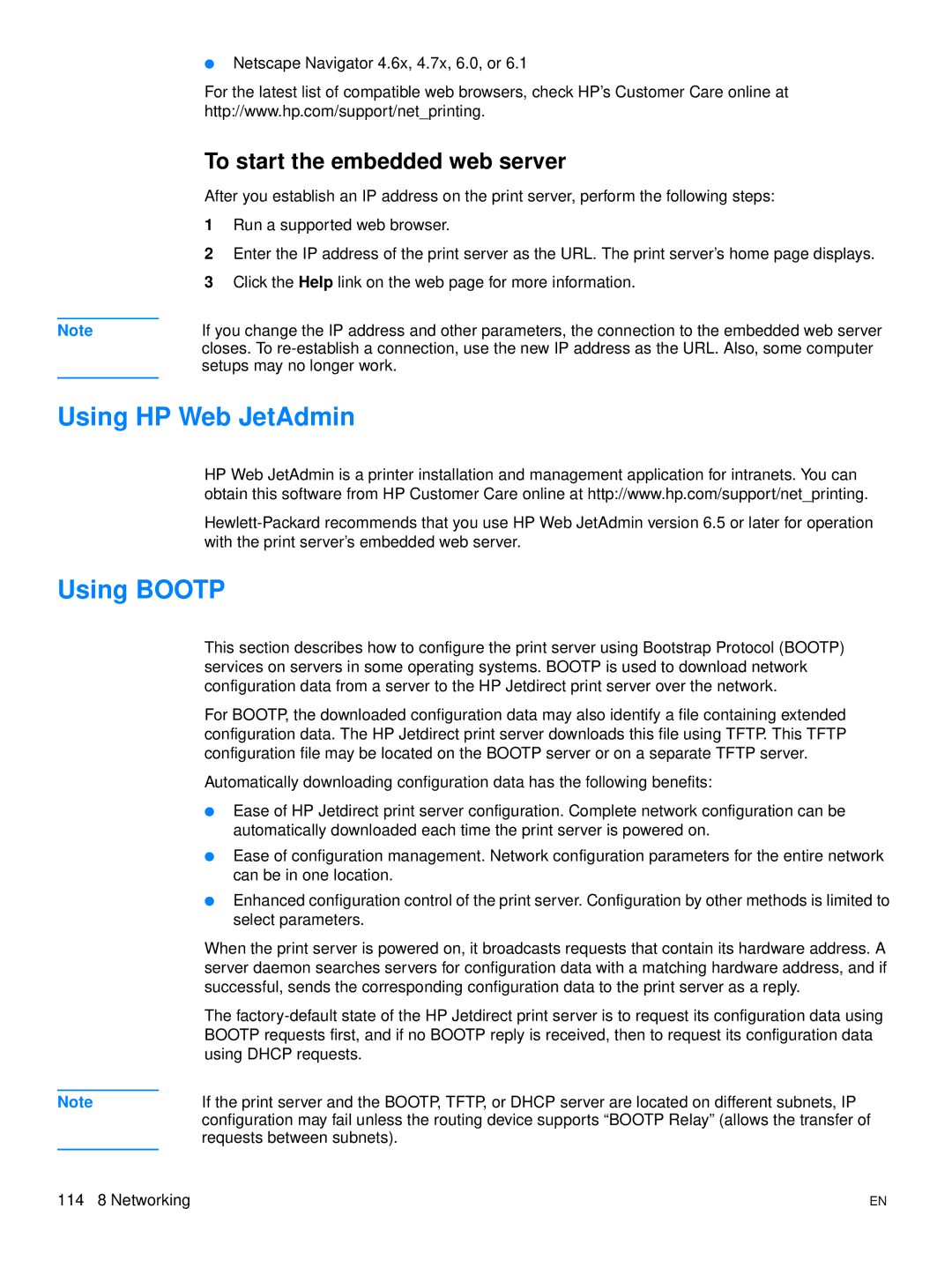●Netscape Navigator 4.6x, 4.7x, 6.0, or 6.1
For the latest list of compatible web browsers, check HP’s Customer Care online at
http://www.hp.com/support/net_printing.
To start the embedded web server
After you establish an IP address on the print server, perform the following steps:
1Run a supported web browser.
2Enter the IP address of the print server as the URL. The print server’s home page displays.
3Click the Help link on the web page for more information.
Note | If you change the IP address and other parameters, the connection to the embedded web server |
| closes. To |
| setups may no longer work. |
|
|
Using HP Web JetAdmin
HP Web JetAdmin is a printer installation and management application for intranets. You can obtain this software from HP Customer Care online at http://www.hp.com/support/net_printing.
Using BOOTP
This section describes how to configure the print server using Bootstrap Protocol (BOOTP) services on servers in some operating systems. BOOTP is used to download network configuration data from a server to the HP Jetdirect print server over the network.
For BOOTP, the downloaded configuration data may also identify a file containing extended configuration data. The HP Jetdirect print server downloads this file using TFTP. This TFTP configuration file may be located on the BOOTP server or on a separate TFTP server.
Automatically downloading configuration data has the following benefits:
●Ease of HP Jetdirect print server configuration. Complete network configuration can be automatically downloaded each time the print server is powered on.
●Ease of configuration management. Network configuration parameters for the entire network can be in one location.
●Enhanced configuration control of the print server. Configuration by other methods is limited to select parameters.
| When the print server is powered on, it broadcasts requests that contain its hardware address. A |
| server daemon searches servers for configuration data with a matching hardware address, and if |
| successful, sends the corresponding configuration data to the print server as a reply. |
| The |
| BOOTP requests first, and if no BOOTP reply is received, then to request its configuration data |
| using DHCP requests. |
|
|
Note | If the print server and the BOOTP, TFTP, or DHCP server are located on different subnets, IP |
| configuration may fail unless the routing device supports “BOOTP Relay” (allows the transfer of |
| requests between subnets). |
|
|
114 8 Networking | EN |
